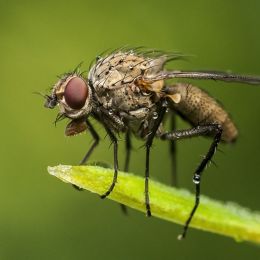- photo contests ▼
- photoshop contests ▼
- Tutorials ▼
- Social ▼Contact options
- Stats ▼Results and stats
- More ▼
- Help ▼Help and rules
- Login
Learn some Good Habits - Photography Tutorial

Photography is an art, similar to drawing or painting. There will always be those that are naturally gifted in one media or the other, and the rest of us have to work out ways to keep up. One of the easiest ways to match excellent photographers shot for shot is by adapting a few of their common practices. Here are five habits of great photographers, in no particular order.
submitted: 5 years and 3499 days ago
Tips for Lighting Control in Portraits - Photography Tutorial

Tired of seeing black eye sockets and whitened out faces in that last series of snaps you took at the family outing? It’s easy to get a much better result if you just look at the light. No light, no picture, but what counts is the light quality and direction. And the good part is you can use natural lighting just as effectively inside as well as outside. A little careful seeing before you click the shutter is all that’s required.
submitted: 5 years and 3499 days ago
Tips and Techniques for Abstract Shooting - Photography Tutorial

Creating beautiful images is easier when you know a few photographic techniques. This is especially true for abstract photography. Therefore, this short article covers four techniques that work very well for creating abstract images. The techniques that will be covered are selective focus, light and shadows, curves, and texture. Each one of these techniques can be utilized with many different types of subject matter. The real key is to practice these techniques on all sorts of objects. The more you practice, the better you’ll become.
submitted: 5 years and 3499 days ago
File Format Tips - Photography Tutorial

In past times, photographs would be captured onto light sensitive film. Then, after development in the darkroom, a negative would be produced. With digital photography, images are stored as a digital file. For viewing, the file is decoded – and there are 3 main types of file used – JPEG, TIFF and RAW.
submitted: 5 years and 3501 days ago
How to Use Lines in Compositions - Photography Tutorial
Childhood Essence - Tips and Techniques - Photography Tutorial

Ensure before you begin to photograph your child that you have all your equipment with you. Ensure you have picked your spot and setup your props if you are using them. Props will help keep the younger ones entertained, especially if its their favorite toy or a toy they have never seen before.
submitted: 5 years and 3501 days ago
Commonly Used Terms and What Do They Mean? - Photography Tutorial

Digital photography is quickly becoming the preferred way to take pictures. If you are in the market for a new camera, consider the following advantages of digital over traditional film photography. In the long run, digital is less expensive. All photos are recorder are on memory device within the camera and then downloaded straight to your computer. You skip the need to keep buying rolls of film and paying for developing. You can send unlimited copies of the same picture to friends and relatives without spending a penny extra.
submitted: 5 years and 3501 days ago
How to Use Digital Camera Metering Modes - Photography Tutorial

Ever wonder how your camera picks the right exposure (not too bright or too dark) for most of your shots? That is because most cameras have built in light meters. The purpose of the meter is to measure the amount of light being reflected back into the camera from a particular subject or from a whole scene.
The camera then calculates the best shutter speed and aperture opening combination to yield a properly exposed image. (or you set it yourself if you have the option of making manual exposure settings).
The light levels can vary from scene to scene, or from subject to subject. So there are a few different ways meters can measure the light. The three most common are listed below.
submitted: 5 years and 3508 days ago
Tips for Using Perspective and Scale - Photography Tutorial

The world we live in is three dimensional, we see in three dimensions yet when we photograph we see only two dimensions. In order to create images that add a third dimension we need to add some perspective or depth. The big question is what is perspective and how do we add it?
submitted: 5 years and 3508 days ago








